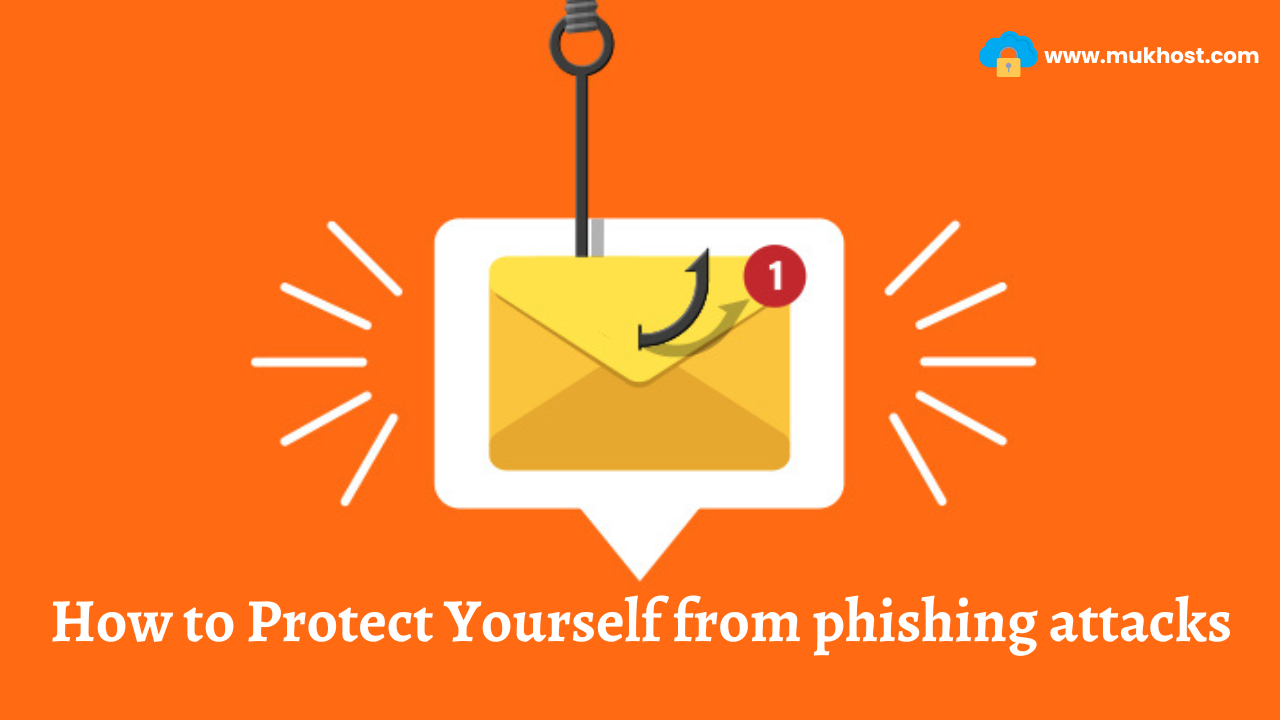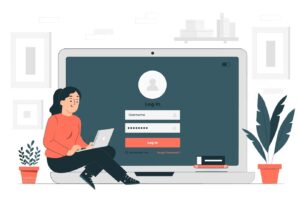Phishing is a cyber-attack where criminals send fake emails, text messages, or phone calls to trick people into giving away sensitive information such as passwords, credit card numbers, and personal details. Phishing attacks are a concern because they can lead to identity theft, financial loss, and other serious problems. This article will discuss phishing, how it works, how to identify phishing attempts, and how to protect yourself from phishing.
What is Phishing?
Phishing scams trick people into giving away sensitive information by pretending to be trustworthy sources. Criminals will often use an email, text message, or phone call to impersonate a bank, credit card company, or other reputable organization. They will then ask for personal information such as passwords, credit card numbers, or social security numbers. Some of the most common phishing types include email, phone, and text messages.
Examples of common phishing scams include emails claiming to be from a bank asking for account information and phone calls claiming to be from the IRS demanding payment.
Identifying Phishing Attempts
Several red flags can help you identify a phishing attempt. Some of these include emails or messages asking for personal information, emails or messages with a sense of urgency, and emails or messages with spelling or grammar errors. To verify the authenticity of a message or email, you should look for the company’s logo and contact information.
You should also hover over links to see the website’s address and ensure it is legitimate. Tips for recognizing and avoiding phishing scams include not clicking on suspicious links and not giving away personal information.
How Can You Prevent Phishing?
Phishing is a cyber-attack where criminals send fake emails, text messages, or phone calls to trick people into giving away sensitive information such as passwords, credit card numbers, and personal details. To prevent yourself from falling victim to phishing, there are several steps you can take:
- Be wary of unexpected or unsolicited messages or emails, even if they appear to be from a legitimate source.
- Don’t click on links or download attachments from unknown or suspicious emails.
- Use anti-phishing software and browser extensions to help identify and block phishing attempts.
- Be cautious of any message or email that creates a sense of urgency or pressure.
- Keep your computer and mobile devices updated with the latest security software.
- Don’t give away personal information such as credit card numbers, social security numbers, or passwords unless you are certain of the request’s legitimacy.
- Report any suspicious messages or emails to the appropriate authorities.
Following the above steps can protect you from phishing scams and protect your personal and financial information. Remember that scammers are constantly finding new ways to trick people, so it is important to be vigilant and aware of the latest phishing tactics.
Pay Attention To The Sender and The URL in Your Emails
When you receive an email, paying attention to both the sender and the URL is important. This can help you identify phishing attempts and protect yourself from cyber-attacks.
The sender of an email is the person or organization that sent the message. Be cautious of emails from unknown senders or people you don’t know. Additionally, be wary of any emails that appear to be from a legitimate source but have slight variations in spelling or address.
The URL is the website address included in the email or message. Be careful of any links or attachments in an email from an unknown or suspicious website. Before clicking on any links or attachments, hover over the link to see the website’s address and ensure it is legitimate.
By paying attention to the sender and the URL in your emails, you can identify phishing attempts and protect yourself from cyber-attacks. Remember to be cautious of any unexpected or unsolicited emails and to never click on links or download attachments from unknown or suspicious sources.
Avoid Downloading Email Attachments You Don’t Expect
When you receive an email attachment, it is important to be cautious and avoid downloading attachments you don’t expect. This can help you protect yourself from cyber attacks and viruses.
Be wary of any email attachments from unknown or suspicious senders, even if the attachment appears to be from a legitimate source. Scammers may use these attachments to spread malware or steal personal information. Additionally, be careful of attachments with unexpected file types such as .exe, .zip, and .js. These types of files are often used to spread malware.
Before downloading any attachments, ensure the email is from a legitimate and trusted source. If unsure about the attachment, you can contact the sender to confirm its authenticity.
By avoiding downloading email attachments you don’t expect, you can protect yourself from cyber attacks and keep your personal information safe. Remember to be cautious and always verify an attachment’s authenticity before downloading it.
Always Check The Site You’ve Landed On
It’s important to always check the website you’ve landed on when you click on a link in an email or message. This can help you protect yourself from phishing scams and cyber attacks.
When you click on a link, ensure that the website is legitimate and is what you expect. Be wary of any website with slight spelling or address variations from the website you intended to visit. Additionally, check the website’s security certificate to make sure that it’s legitimate and secure.
Be careful of any website that asks for personal information such as passwords, credit card numbers, or social security numbers. Legitimate websites will never ask for personal information in an unsolicited manner.
You can protect yourself from phishing scams and other cyber attacks by always checking the website you’ve landed on. Remember to be cautious and verify the authenticity of any website before entering personal information or making any transactions.
Ignore Money Requests
Scammers may trick you into sending money by posing as a legitimate organization or person. They may claim that you’ve won a prize or that they need money to help a friend or family member in need. They may also threaten you with legal action or other consequences if you don’t send the money.
Be cautious of any requests for money that come from unknown or suspicious sources, even if they appear to be from a legitimate source. Legitimate organizations or people will never ask for money in an unsolicited manner.
By ignoring money requests, you can protect yourself from scams and fraud. If something seems too good to be true, it probably is. Never send money to anyone you don’t know or trust and always verify the authenticity of a request before sending any money.
How MukHost can Protecting You from Phishing attacks
MukHost can play a significant role in protecting you from phishing attacks. Here are some ways how:
SSL Certificates: MukHost can provide Free SSL certificates to encrypt all data exchanged between your website and visitors. And can help prevent hackers from intercepting any sensitive information that users enter on your site.
Email Filters: They also offer filters that automatically detect and remove phishing emails from your inbox. This can prevent you from accidentally clicking on a phishing link or downloading malware.
Website Security: Various website security measures, such as firewalls and malware scanners, protect your website from attacks. These measures can detect and remove any malicious code that could be used to steal user information or spread malware.
Regular Backups: MukHost can help you with regular backups of your website data, which can help you quickly recover from a phishing attack or any other cyber attack.
Education and Support: And also offer educational resources to help you stay aware of the latest phishing techniques and protect yourself and your website from these attacks.
In the end, MukHost can provide various security measures that can help protect you from phishing attacks. It’s essential to choose a reputable and reliable Cloud web hosting provider that can offer these services and support to ensure the security of your website and your users.




